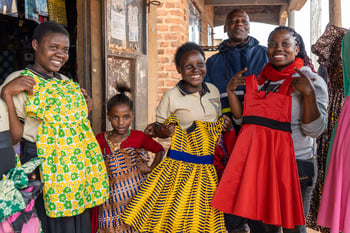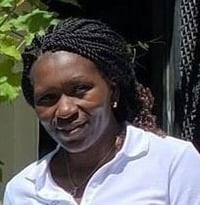Promoting Child Education in Ugandan Coffee Communities
Respecting Human Rights
JDE Peet’s commitment to respect and protect human rights across our entire supply chain is integral to our guiding purpose: to unlock the possibilities of coffee and tea to create a better future.

Common Grounds Farmer Programme: Promoting Child Education in Ugandan Coffee Communities
Project Partners: Kyagalani Ltd, CEFORD, Rainforest Alliance, RVO
Project Area: Greater Masaka and Rwenzori districts of Central and Western Uganda.
Project Period: 2020-2023
Scope: At least 9,000 coffee growing households
Uganda is one of the world’s leading Robusta producers, and smaller quantities of Arabica are also grown in the Mt. Elgon and Rwenzori highlands and in the West Nile region.
More than 1.8 million smallholder farmers in Uganda depend on coffee for their livelihoods though the majority of Ugandan smallholder coffee farmers live below the poverty line and work on farms that average less than 0.2 hectares. Children continue to face educational challenges in Uganda’s coffee communities which increases the risk of child labour and the likelihood that children won’t receive quality education.
For most of 2020 and 2021, schools in Uganda were shut due to the Covid-19 pandemic and preliminary post-pandemic data shows that farmers are now more likely to be unable to afford to send their children to school due to the combination of school fee hikes and economic hardship stemming from the pandemic and from cost of living increases associated with inflation.
Without increased community awareness and community based monitoring and remediation systems this challenge is likely to continue. This project “Promoting Child Education in Ugandan Coffee Communities” is a joint initiative partnering with one of our suppliers Kyagalani Coffee Limited, Rainforest Alliance, Ugandan based Community Empowerment for Rural Development (CEFORD) and Netherlands Enterprise Agency (RVO) Fund Against Child Labour (FBK).
Together we are working at the community level in two coffee sourcing regions of Masaka and Rwenzori to tackle child labour and its root causes. The approach is to involve all stakeholders within the area including coffee exporter staff, teachers, parents, children, community groups, religious and cultural leaders and local authorities in a participatory approach to tackle this complex issue.
As we now complete the project we are in discussions with the partners and local stakeholders to align on how to scale the learnings and interventions to reach more coffee communities.
“WHAT IMPRESSES ME MOST IS THAT THIS APPROACH INCLUDES EVERY ASPECT OF THE CHILDREN’S LIVES – FROM THEIR PARENTS AND SCHOOLS TO GOVERNMENT AND THE PRIVATE SECTOR – AND THAT THE CHILDREN THEMSELVES ARE ENGAGED AS AGENTS OF CHANGE”




